A little while back, Rikki, Jen, and company at Opensource.com told me that they were asking people to share their open source stories about how they got interested in open source and started contributing.
Well, for the bored among you, here is my story. As usual, share your feedback in the comments. I am curious to hear your mockery of my life choices back then.
The year was 1998
...and I was 19 years old. I was (in my mind) a typical teenager. I wore Iron Maiden T-shirts most days, had long hair, big Doc Martin boots, an axe chain around my neck, and an even more ridiculous beard than the one currently glued to my chin these days.
Similar to today, back then my major passions were technology and music. On the tech side I loved computers and gadgets. On the music side I was playing local clubs in my metal band.
These two interests were actually starting to generate some internal tension in me. I was seriously considering trying to make a career as a professional musician, but I knew that technology was a more stable path to follow. So, I jammed with my band as a hobby and I tried to learn as much as I could about technology.
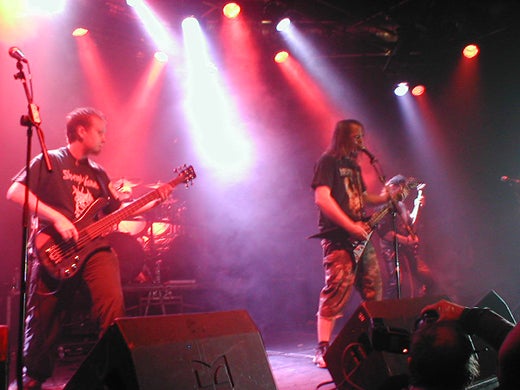
At the time, my dream was to be a programmer. I went to night school to learn C++ and started writing programs in Turbo C++. Programming was technically very interesting, but it always lacked a people component that I was craving; it was just me writing programs. It felt... antisocial, in a way. As such, even though coding excited me, there was always something I felt was missing.
Later in 1998, my brother Simon came to stay with us. Simon was my technology muse. He convinced my parents to get me a Commodore 64 when I was a kid. He also hooked me up with his crappy 8086 when he upgraded to a fancy-pants 286. He knew I liked computers and he helped to feed my addiction.
He came to stay with us for a few weeks, and one evening I was bemoaning some Windows problems I had.
"Why are you using a Mickey Mouse OS like Windows?" he said.
I didn't have a good answer. I didn't realize there was an alternative other than DOS. I asked him what that alternative was.
"Linux," he said. "It's this really cool system that people around the world are creating on the Internet. It was made by this Finnish guy and it is basically a free version of UNIX."
I had heard of UNIX. I knew it was a powerful platform that banks and government used. I knew it was command-line driven and pretty hardcore to use. I had also heard it was a bit dusty and dated. The notion of UNIX on my computer sounded fun though, particularly as I had assumed the only things that could run UNIX were huge mainframes.
At the time I worked a part-time job in a bookshop and remembered seeing the Linux books come in and being curious about what they were. The following day, I used my staff discount to buy Slackware Unleashed, which came with a CD-ROM with the software on it. The notion of an entire operating system available for free on a CD-ROM glued to the back of a book stunned me.
I took it home and Simon installed it for me. It was a complex, surgical operation as Simon tried to get the different pieces in place and the boot loader into the right bit of the MBR. The day after he installed it for me, he moved out and left a post-it note on my screen with a username and password.
I got home from school later that day, booted my computer, and instead of the usual graphical interface I was familiar with, I saw:
darkstar login:
Confused, I picked up the book and started reading. I started at Chapter 1, and the book talked about how Linux was free and created by volunteers around the world. It talked about the importance of freedom and how anyone could download the code, make it better, and share it with others.
I was absolutely captivated.
The notion of people connected by the Internet working on making the software on their computers was fascinating. It was the missing social component I craved from my programming.
I couldn't stop reading the book, and when I was online I was devouring as much information as I could. I was reading every website, newsgroup, and mailing list I could. I joined IRC channels, researched different projects, and compiled and ran different programs.
Linux UK
For me, Linux was becoming more than software—it was becoming a lifestyle.
I felt this urge that more people should know about it. I started printing iron-on transfers of tux penguins on T-shirts and wearing them to work and school. I put up posters, called local tech shops to ask if they would install Linux, contacted radio and TV stations, and more.
With all this reading about people contributing in some way, I decided I wanted to make a more structured difference too. Not really knowing how to hack on kernels, I decided to build a website to bring Linux users in the UK together. I felt an urge to empower the UK community to get to know each other and felt I could make some kind of difference there.
So I fired up Microsoft Frontpage (ironic, I know) and created a site. It went up on Geocities at first, and then volunteers in the community offered to buy the domain and host the site. Before I knew it, my little site was becoming a thing. The experience of having an idea and making it happen with others was thrilling to me.
As I built the site and added news and events, I got to know the UK Linux community more and more. I met people like Stuart Langridge, Matthew Garrett, Telsa Gwynne, John Masters, Alan Cox, Kat Goodwin, Phil Hands, Gerv Markham, and others, who I am still friends with today. Everyone who I met were fun, interesting, and excited about technology and making a difference.
In 1999 I went to University and decided to set up a local Linux User Group. I ended up getting to know more Linux people. I learned new skills and experimented with all kinds of different things. I tried all manners of distros, set up a home network, built a MythTV box to record TV, set up various servers, and more. It was thrilling: I felt on the edge of technology as it developed.
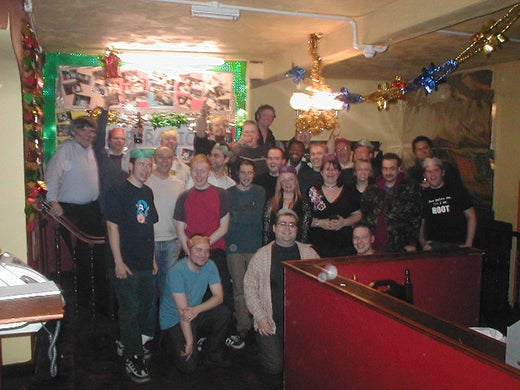
KDE and GNOME
A little while into University I wanted to broaden out from Linux UK and I had increasingly become a fan of KDE. Back in the pre-1.0 days I felt KDE had the best opportunity to unseat Microsoft Windows.
So, I started hanging around the project and helping where I could. I ran the CVS version of KDE on my computer and reported bugs. I founded some projects such as KDE::Enterprise and rebooted the KDE Usability Study. I also become the UK press contact for KDE and started going to conferences to exhibit for the project and speak about the work going on.
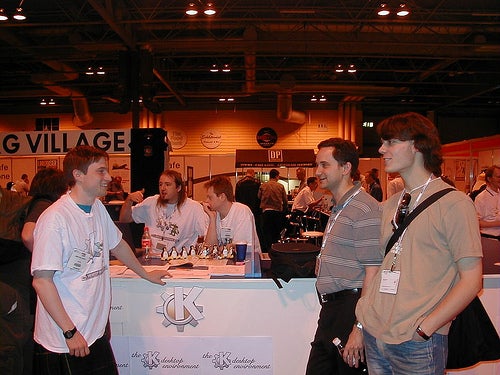
KDE was an interesting experience because it introduced me to an international audience. Here I was talking to awesome people like David Faure, Aaron Seigo, Celeste Lyn Paul, Stephan Kulow, Anne-Marie Mahfouf, Cornelius Schumacher, Matthias Ettrich, and others.
Around this time I was really getting interested in how software is designed, created, and interacted with. I read book after book about interaction design and usability. I was also starting to feel like KDE back then was not being opinionated enough about simplicity in design. I felt my attention shifting over to GNOME.
When I installed GNOME 2.0 for the first time I was stunned by the elegance in the simplicity. I started to get to know the community and the same excitement and authenticity was present, just focused on a different set of goals and ambitions. What was different with GNOME was a sense of celebrity—the leaders of the project such as Miguel de Icaza, Nat Friedman, Joe Shaw, Luis Villa, Robert Love, and others were opinionated and not afraid of sharing at times controversial decisions. I loved that.
It was around this time that the Linux User Group I founded had found its groove. The meetings were social, fun, and at times raucous. This is when I had an idea about taking the most fun people from the LUG and making an audio show that people could listen to online (this was before podcasting became a big thing). And so LugRadio was born; something of a Howard Stern of technology shows.
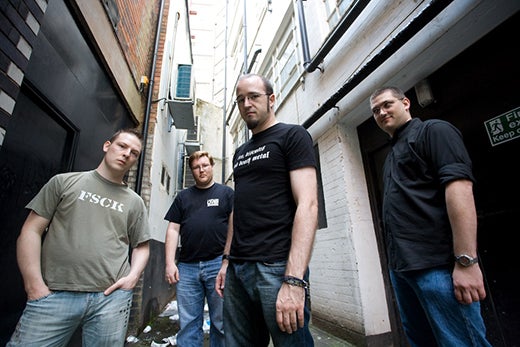
LugRadio later became a strange cult thing. More and more people started listening to it, and we decided to organize a one-day gathering with presentations. We expected about 40 people to show up and nearly 260 people crammed into our tiny venue. We felt we were onto something, and LugRadio went on have over 2 million downloads in the four years we did it and spawned six more events, one of which was in the USA.
Making a career in open source
Around 2004 I had finished university and was working as a journalist. One of the articles I wrote was about an interesting local organization called OpenAdvantage. They were government funded with the goal of moving local organizations, schools, and people over to open source.
I had met one of their founders (who heckled me at a Linux User Group talk I gave) and was invited to their launch party. As I learned about their focus, I wrote a glowing article about them. A few weeks later, the executive directors invited me over for lunch and offered me a job as a consultant. I took it, excited to turn my passion into my career.
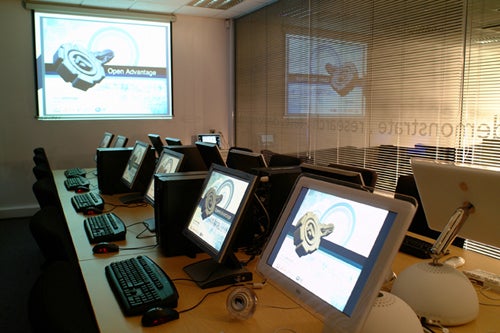
OpenAdvantage was a trial by fire. Lots of fire. We had really ambitious numbers to hit and I needed to learn a multitude of technologies quickly. In it I consulted with companies, did training, and really started dipping more and more into community leadership. Outside of OpenAdvantage I continued to run the LUG, do LugRadio, and hacked on some spare-time projects such as an audio multi-track I co-founded called Jokosher.
OpenAdvantage also provided an opportunity for me to travel. I got to go conferences and soak up the inspiration and energy from people in real life. This was enthralling. It was exciting to meet, discuss, and socialize with my heroes. I could feel myself becoming part of the world I was so passionate about and it was incredible to watch it unfold in front of my eyes.
Becoming a community manager
OpenAdvantage was always going to be a temporary gig, though. It was a funded project for just a few years, and as we neared the end of this period I started to think about alternatives.
This was back in 2006 when Ubuntu had hit the Linux world by storm. I knew Mark Shuttleworth a little (we had him speak at a couple of LugRadio Live events) so I decided to drop him an email to see if there was a fit for me at Canonical. He responded with:
"Well, we are about to open a role called Ubuntu Community Manager, but I really don't think it is for you."
I asked him to send over the job description, and as I soaked it up I knew I wanted it. I really wanted it. I emailed back and asked him to entertain just one interview with me.
A few months and four interviews later, the last one awkwardly being in Mark Shuttleworth's kitchen, I landed it.
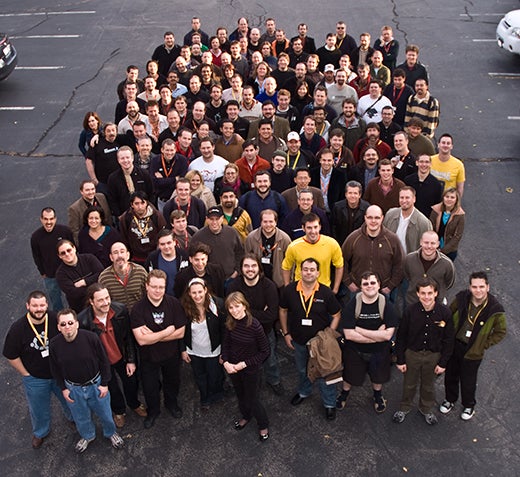
I was absolutely overjoyed. I couldn't believe my luck. As I took the train home from London I felt a new chapter was really opening in my life.
That was an understatement. What followed was an fantastic ride into the belly of open source with many incredible times, some trials and tribulations, but always tremendous people along the way.
This is long enough though, so maybe we can delve into those stories some other time...
Conclusion
So those are the key markers in how I got into open source and managed to turn it into a career.
There is something special about open source people. There is a kindness, a practicality, and a motivation that is truly remarkable. Sure, the technology is incredible, but it is that deep seated sense of collaboration and opportunity that has kept me involved and passionate about our world to this day.
Thanks for reading!

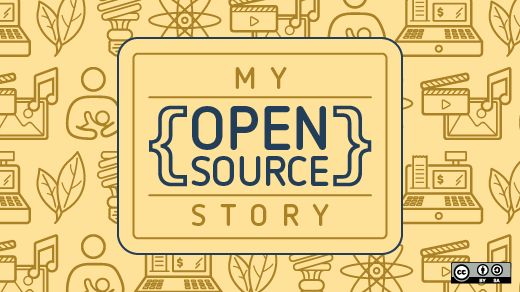

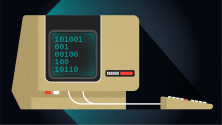

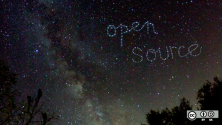

3 Comments